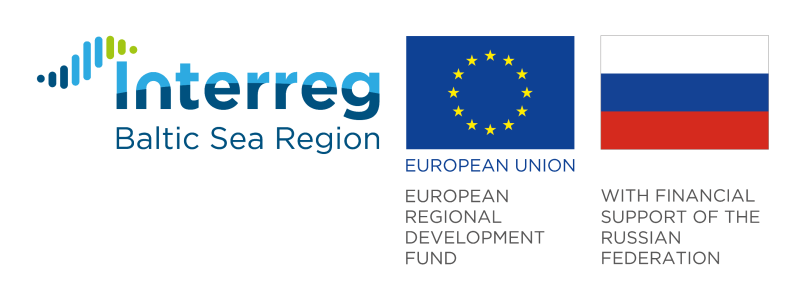An interdisciplinary jury has nominated 31 projects from the sectors architecture, energy, communication, household, interior, transportation and fashion. Among these, 12 were being honored with the German Federal Ecodesign Award during the award ceremony at the Federal Ministry for Environment on 25 November 2019. 
The German Federal Ecodesign Award is Germany's highest state award for ecological design. The prize is awarded in the four categories "Product", "Service", "Concept" and "Young Talent" to projects which are convincing in design and environmental consciousness. It targets enterprises of all sizes in all industries as well next-generation designers. Since 2012, the German Federal Ecodesign Award has been granted annually by the Federal Environment Ministry (BMU) and the German Environment Agency (UBA) in cooperation with the International Design Center Berlin (IDZ).
BAKER'S BUTCHERY // Young talent - Concept

Baker's Butchery
Lukas Keller (Burg Giebichenstein Kunsthochschule Halle, Germany)
The concept aims to encourage scrutiny of our food culture and envisages integrating mealworm farms into bakeries which would allow the waste heat and nutrient production to be put to use.
» With the Baker’s Butchery concept, we have already anticipated the future of nutrition for a growing global population. It couples the utilisation of food waste with the development of alternative sources of protein. Thanks to the close geographical interconnection of two material cycles, it is possible to achieve synergy effects and reduce environmental pollution.
Andreas Detzel
© IDZ | Lukas Keller
BANANATEX® // Product

Bananatex®
QWSTION (based in Reith bei Seefeld, Austria)
This functional, waterproof fabric is made from the fibres of the Abacá banana plant to make bags. The robust banana plant is grown in the Philippines using sustainable forestry practices.
» A convincingly well-designed backpack from the Swiss label QWESTION. Together with partners in Taiwan and the Philippines, they developed the material from Abacá banana fibre as an open-source project over the course of three years. This is a renewable raw material as well as pesticide-free and biodegradable, with both strong technical and aesthetic properties.
Prof. Friederike von Wedel-Parlow
© IDZ | QWSTION
DONK-EE // Service

Donk-EE
Green Moves Rheinland GmbH & Co. KG (based in Düsseldorf, Germany)
The sharing system is app-based and provides electric cargo bikes available 24/7 at 50 locations in Cologne for mobility needs such as moving house, big shopping trips or a family outing.
» Donk-EE is a significant improvement to existing cargo bike and e-bike rental systems. In the city, these high-quality German-manufactured bikes offer an alternative to your own car due to their high efficiency, the charging with green electricity and the app-based reservation system. They are an outstanding example of the principle of ‘use instead of own’.
Prof. em. Günter Horntrich
© IDZ | Green Moves Rheinland GmbH & Co. KG
EVE THERMO // Product

Eve Thermo
Eve Systems GmbH (based in Munich, Germany)
A radiator thermostat adjusts room temperature according to individual daily routine. It can be controlled with Apple HomeKit or Bluetooth Low Energy Technology and connects directly to iPhones or iPads.
» Intelligent heating control helps to reduce the energy consumption of room heating. Programming the device directly or via smartphone allows the heater to be used only when needed. This is a product with great savings potential that also impressed the jury with its sensitive design and ease of use.
Prof. Matthias Held
© IDZ | Eve Systems
MARINE LITTER CLEANUP - SEEeLEFANT // Concept

Maritime waste collection - SeeElefant
One Earth - One Ocean e.V. (based in Garching, Germany)
The multi-purpose vessel SeeElefant uses its on-board cranes to load plastic waste gathered from collecting vessels and then processes the waste into unmixed bales which are stored on the ship.
» The “SeeElefant” is a huge container ship that collects, sorts and recycles or liquefies plastic waste. This marine litter cleanup by the company One Earth – One Ocean could play a role in helping solve one of the greatest global environmental challenges: The littering of our oceans.
Rita Schwarzelühr-Sutter
© IDZ | One Earth - One Ocean e.V.
SOAPBOTTLE // Young talent - Product

SOPABOTTLE
Jonna Breitenhuber ((Berlin University of the Arts)
Soap-based packaging is suitable for liquid hygiene products and can be used as hand soap or turned into detergent after its contents are used.
» SOAPBOTTLE by Jonna Breitenhuber is a fantastic example of the rethinking of packaging. Here, the packaging is also a product. This not only avoids waste but also encourages users to reflect on packaging.
Dr. Bettina Rechenberg | Maria Kraudzberger
© IDZ | Jonna Breitenhuber
URBAN: EDEN // Young talent - Concept

urban:eden
Paulina Grebenstein (Kunsthochschule Berlin Weißensee, Germany)
Urban:eden envisions new climate adaptation systems such as air processing, retention and solar reflection which ensure an overall improvement of quality of life in the city.
» urban:eden is an extremely well-conceived and complex work. The concept combines extensive systems, among others for the filtering and processing of air and rainwater, with a variety of urban infrastructure measures. The development of integrated strategies for reducing the burden on the urban environment will have a considerable influence on future urban planning concepts.
Prof. em. Günter Horntrich
© IDZ | Paulina Grebenstein
WEBER.THERM CIRCLE // Product

weber.therm circle
Saint-Gobain Weber GmbH (based in Düsseldorf, Germany)
This full-mineral thermal insulation system can be deconstructed into all its components which can then be sorted and returned to the raw material cycle.
» Germany alone uses five million cubic meters of insulating materials every year. These are often permanently attached to the building, meaning that they cannot be recycled. The recyclable heat insulation system weber.therm.circle from Saint-Gobain Weber GmbH is an excellent innovation that aims to tackle this problem, and is an important step towards higher resource efficiency in the construction industry. The system also has other positive properties, including exceptional robustness and the fact that it does not require biocides.
Dr. Bettina Rechenberg / Maria Kraudzberger
© IDZ | Saint-Gobain Weber GmbH
WIKKELHOUSE // Product

Wikkelhouse
Wikkelhouse B.V. (based in Amsterdam, Netherlands)
Whether holiday lodge, office or exhibition space – this cardboard building is made from water-repellent cardboard modules which can be configured according to individual wish.
» The Wikkelhouse combines insulation and statics in a sustainable and intelligent manner – this minimalist combination is what makes the concept so exciting. Thanks to a special wrapping technique, the simple material of cardboard can be used to create versatile buildings.
Werner Aisslinger
© IDZ | © Wikkelhouse | Yvonne Witte
WOODSCRAPER // Concept

WOODSCRAPER
Partner und Partner Architekten (based in Berlin, Germany)
The circular high-rise buildings are made primarily of renewable raw materials such as wood and straw and demonstrate how technology can provide answers to urgent issues such as resource scarcity, climate change and population growth issues.
» Here, architecture is addressing the challenges of its time! The WOODSCRAPER prototype proves that high-rise buildings made of renewable raw materials such as wood and straw are not only feasible but can even generate more resources over their lifetime than they require for construction and repair. The outcome is high-quality design that can be dismantled with all materials unmixed.
PDr. Claudia Perren
© IDZ | Partner und Partner Architekten
WormUp_HOME // Product

WormUp_HOME
WormUp GmbH (based in Zürich, Switzerland)
This composter designed for urban apartments uses worms to recycle organic waste into a high-quality plant fertiliser – odourlessly.
» Worm_Up Home is consistently taking urban gardening a step ahead: Here, organic kitchen waste is turned into valuable compost – right in your apartment. I was convinced by the high-quality feel and the reduced design vocabulary of the composter. Unglazed fired clay from a traditional manufactory creates the ideal climate for the ever-hungry inhabitants.
Rita Schwarzelühr-Sutter
© IDZ | WormUp GmbH | Claude Gasser
VELLO BIKE+ // Product
VELLO Bike+
VELLO Bike GmbH (based in Vienna, Austria)
A lightweight e-bike distinctive in its compact design and intuitive folding mechanism. Electric drive with a self-charging function enables long range travel without the need for a power point.
» This product has everything that jury is looking for in a prize-winning piece of work: It is well designed. It is manufactured locally. It provides its own energy. It has a rechargeable and long-lasting battery that can be easily exchanged by users. It is collapsible and thus space-saving and mobile. Hats off!
Prof. Anna Berkenbusch
© IDZ | VELLO GmbH

- Werner Aisslinger (Product designer)
- Prof. Anna Berkenbusch (Jury Chair, Communication designer, Professor at Kunsthochschule Halle)
- Andreas Detzel (Environmental expert, ifeu Heidelberg)
- Prof. Matthias Held (Product designer, Professor at the School of Design Schwäbisch Gmünd)
- Prof. em. Günter Horntrich (Product designer, Emeritus Professor of Design and Ecology at the Köln International School of Design)
- Maria Krautzberger (President, German Environment Agency)
- Dr. Claudia Perren (Architect, Director of the Bauhaus Dessau Foundation, numerous national and international publications and exhibitions)
- Rita Schwarzelühr-Sutter (Parliamentary State Secretary at the Federal Ministry for the Environment, Nature Conservation and Nuclear Safety)
- Prof. Friederike von Wedel-Parlow (Fashion designer, Founder of Beneficial Design Institute)
© IDZ | Kühnapfel Fotografie


